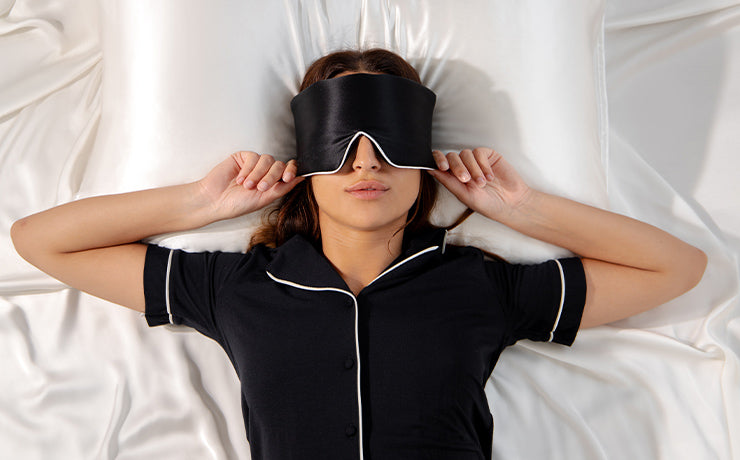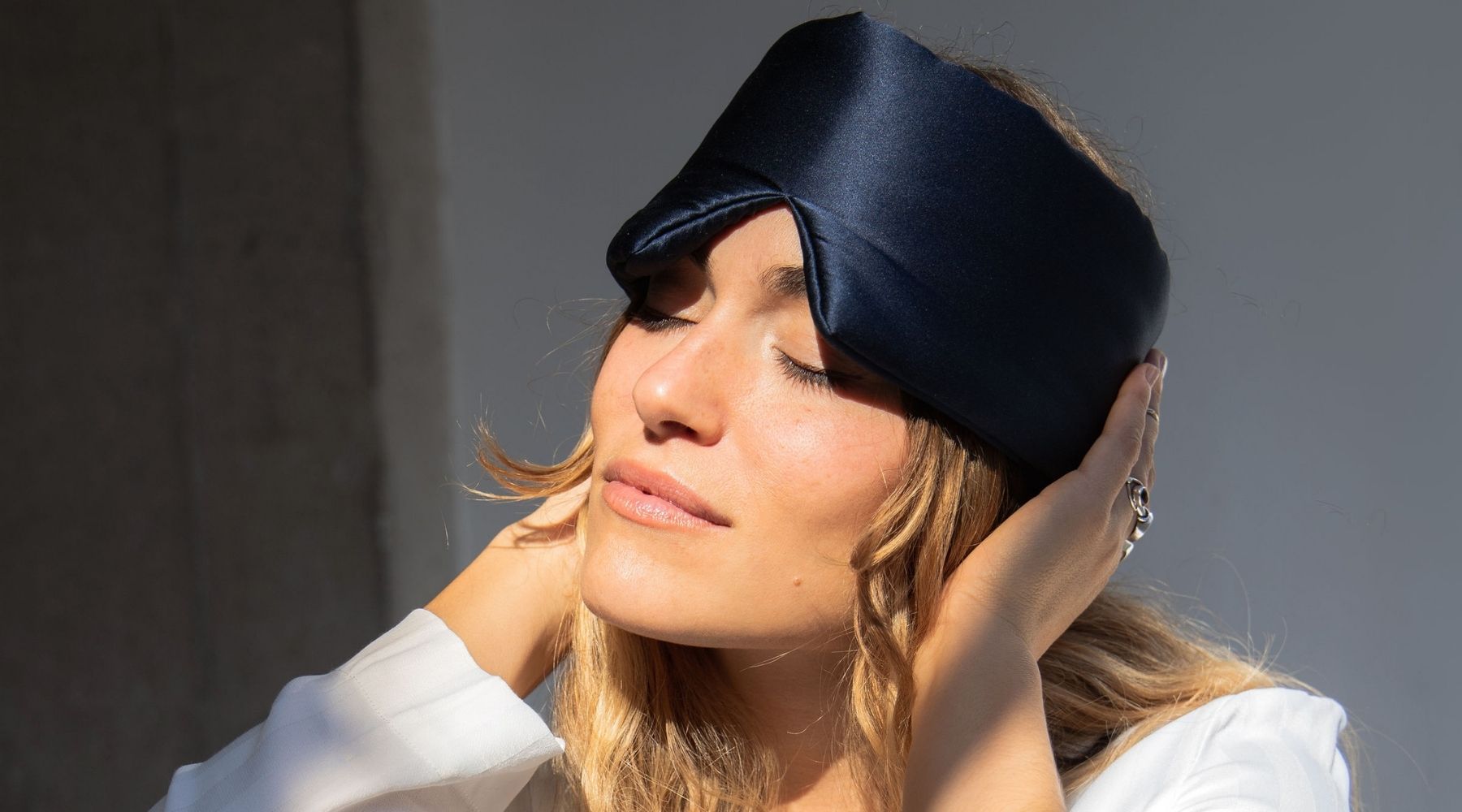Food for thought
When considering the essentials of human survival, food and sleep are paramount, right alongside air and water. However, their relationship can be complex, as certain dietary choices can either promote restful sleep or significantly disrupt it.
To ensure your evening meal supports a rejuvenating night's sleep, it's crucial to be discerning about your pre-bedtime food intake.
Below, we outline the foods to steer clear of before bedtime and highlight those beneficial for enhancing sleep quality and regulating your sleep-wake cycle.
The no no’s
- Takeaways
Indulging in a late-night takeaway might seem like a delightful splurge, yet meals laden with fats and dense carbohydrates can linger in your digestive system, adversely affecting sleep quality. Fast food items such as pizzas and cheeseburgers rank among the most problematic due to their cheese content and processed meats that are challenging to digest. Moreover, be cautious of curries; their spicy ingredients can disrupt both your digestive system and your ability to enjoy a peaceful night's sleep.
- Sugar
Sugar intake can lead to spikes in insulin levels, adversely affecting sleep quality. Given sugar's prevalence in numerous foods, it can be challenging to steer clear of it entirely. However, it's especially important to avoid consuming items like cakes, biscuits, cookies, sweets, ice cream, chocolate, and other desserts before bedtime, as these can significantly disrupt your sleep pattern.
- Caffeine
It's common knowledge that consuming a double espresso right before bedtime is counterproductive to falling asleep smoothly. However, the presence of caffeine extends beyond the obvious coffee-infused desserts like coffee cake or tiramisu. Surprisingly, chocolate is also a culprit, containing hidden caffeine that can affect your ability to fall asleep.
- Cheese
The old wives' tale that eating cheese before bed leads to nightmares may lack scientific backing, yet there are valid reasons to avoid cheese before sleeping. Aged cheeses, such as cheddar, gouda, and Manchego, are rich in tyramine, an amino acid known to activate the brain and adrenal glands, thereby initiating the fight or flight response. This is hardly the state you'd wish to induce as you're winding down for the night. Tyramine is also found in preserved meats, soy sauce, kimchi, pickled foods, citrus fruits, and red wine, all of which can similarly disrupt your sleep.
- Spicy foods
For enthusiasts of spicy cuisine, a word of caution: foods rich in capsaicin, the compound that gives chili peppers their heat, can disrupt sleep in several ways. Firstly, such spicy delicacies can lead to heartburn, an uncomfortable condition that can keep you awake. Secondly, they have the potential to increase your body temperature, which contradicts the cooling down your body undergoes naturally to prepare for sleep. This interference with your body's thermoregulation process can make falling asleep more difficult.
- Fibrous foods
Though foods high in fiber are beneficial for various health aspects, consuming them shortly before bed can be counterproductive for sleep. This is because fibrous foods are harder to digest, potentially leading to discomfort that interferes with your ability to fall asleep easily. Healthy options such as beans, and high-fiber fruits and vegetables like broccoli, apples, and cauliflower, should therefore be consumed well before bedtime to avoid sleep disturbances.
- Salt
Salt has a dehydrating effect on the body, which can lead to grogginess the following day. Moreover, salty snacks such as crisps and nuts are known to disrupt sleep patterns, often causing individuals to experience multiple awakenings throughout the night. To ensure a more restful sleep, it may be wise to limit the intake of such foods before bedtime.
The sleep saviours
- Magnesium-containing foods
Magnesium plays a crucial role in enhancing relaxation before sleep, thanks to its involvement in regulating muscle and nerve function, as well as blood sugar levels. To benefit from magnesium's sleep-promoting effects, consider incorporating foods rich in this mineral into your diet. These include leafy green vegetables, low-fat milk and yogurt, bananas, dried beans and legumes, and unsalted nuts like almonds and cashews.
- Cherries
Cherries are a natural source of melatonin, the hormone produced by the pineal gland that plays a significant role in regulating our sleep-wake cycle. Consuming cherries in the evening can be a beneficial snack option to enhance your body's natural melatonin levels, which often suffer due to exposure to blue light from devices like smartphones. This makes cherries a smart choice for promoting better sleep.
- Tryptophan
Tryptophan, an amino acid present in various foods such as canned tuna, nuts and seeds, turkey, chicken, oats, and whole milk, plays a pivotal role in enhancing sleep quality. Research has demonstrated that a diet rich in tryptophan can lead to improved sleep patterns by boosting the body's melatonin levels, the hormone responsible for regulating sleep.
- Honey
Enjoying a warm mug of water mixed with raw honey might be the perfect remedy for encouraging sleep. Unlike processed sugar syrups, raw honey naturally stimulates the production of melatonin, aiding in the achievement of a peaceful and restful night's sleep.
- Oily fish
Oily fish, including salmon, mackerel, and trout, are renowned for their numerous health advantages. Rich in omega-3 fatty acids and vitamin D, these types of fish have been linked to enhanced serotonin production. This increase in serotonin can contribute to falling asleep more quickly, offering a natural aid for improving sleep quality.
- Kiwi
In one study, it was found that consuming two kiwis before bedtime can potentially enhance sleep quality. Participants reported falling asleep quicker and experiencing longer, more restful sleep (https://pubmed.ncbi.nlm.nih.gov/21669584/ https://www.sleepfoundation.org/nutrition/food-and-drink-promote-good-nights-sleep)
In the pursuit of restful sleep, being mindful of both the quantity and timing of your meals is essential. While retiring to bed on an empty stomach isn't advisable, overindulging before bedtime can be just as detrimental.
Consuming large meals or snacking late at night can disrupt sleep patterns as your body remains active digesting food during sleep hours. It’s best to refrain from eating within three hours of bedtime to promote uninterrupted sleep.
Conversely, if hunger strikes, it's wise to have a light snack before your body begins its nighttime wind-down. This preemptive measure can help stabilize blood sugar levels, preventing nocturnal disruptions.
Let’s be honest, abstaining from eating three hours before bedtime can be a challenge for many. However, if dinner occurs late or snacking persists into the evening, it doesn’t have to disrupt your sleep. Making alternative choices can benefit not only sleep quality but also our waistlines.
In need of assistance to drift off? Our velvety sleep mask offers a solution by effectively blocking out light disturbances. Complement your sleep routine with our opulent Sleep SOS Pillow Spray, featuring aromatic natural oils crafted to soothe the senses and induce deep, restorative sleep.






